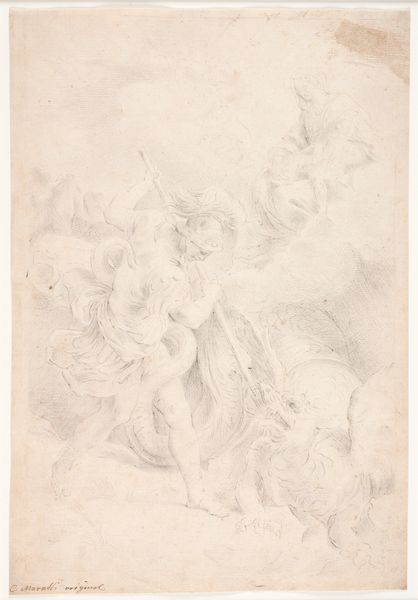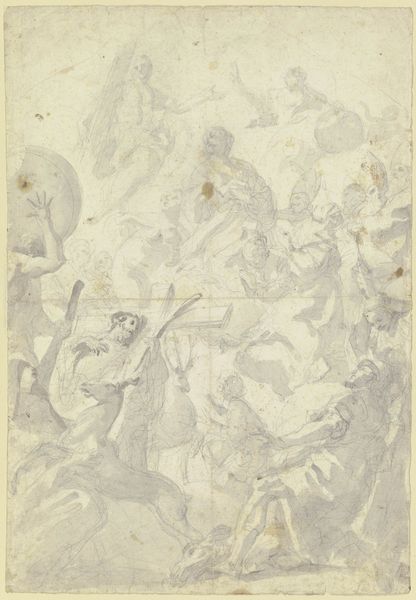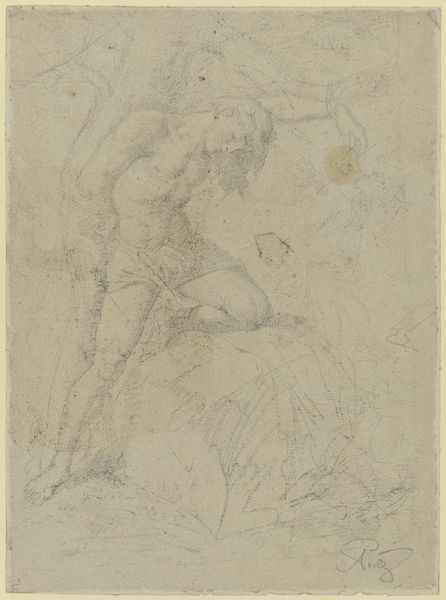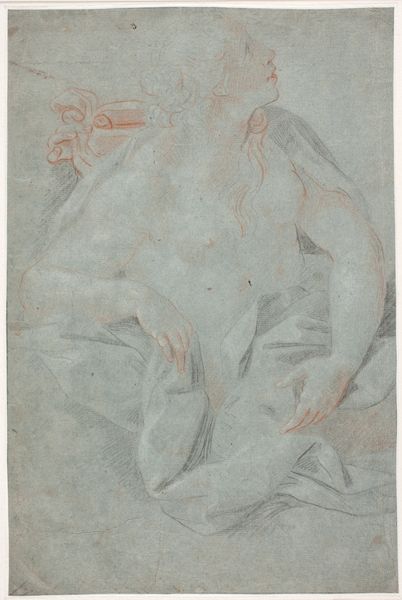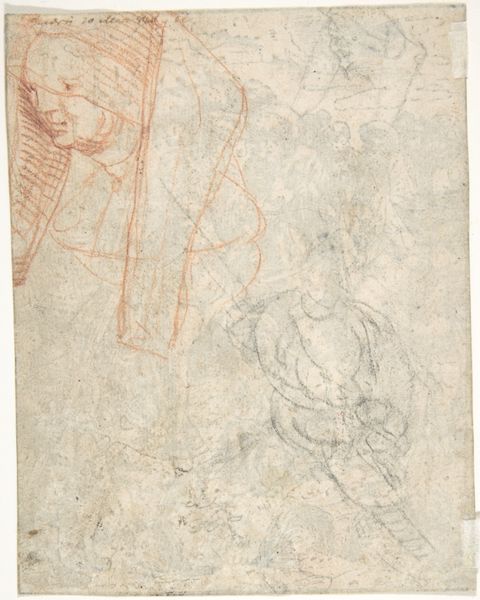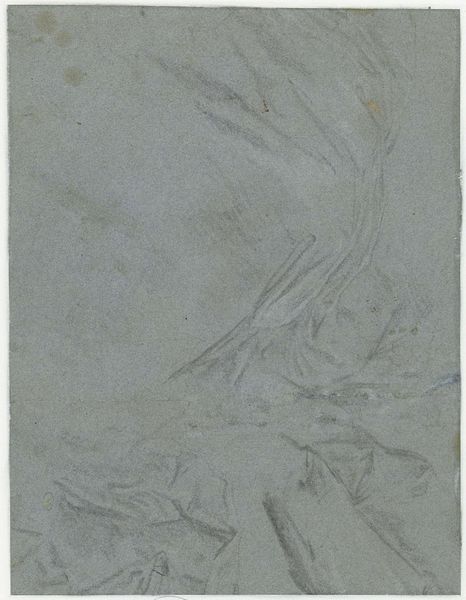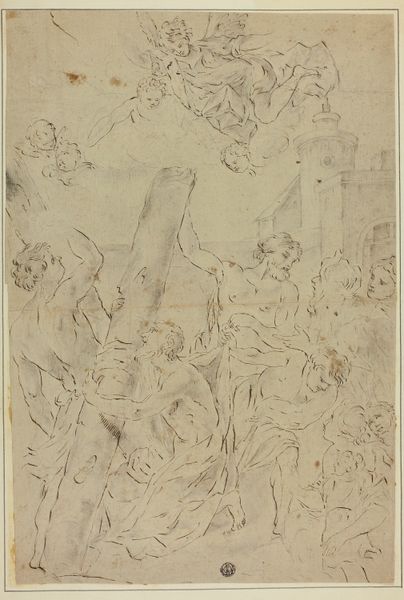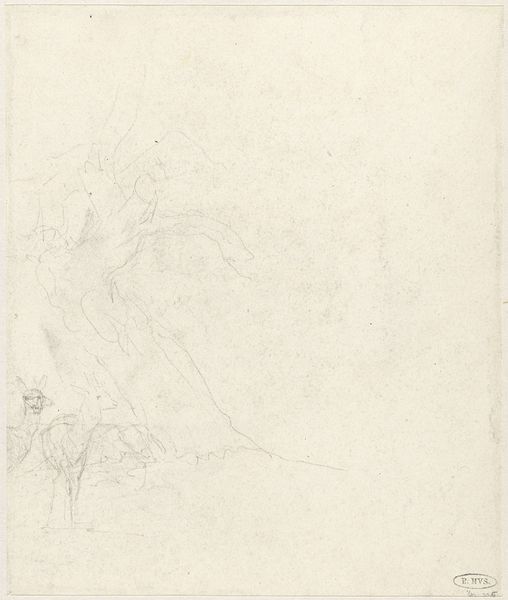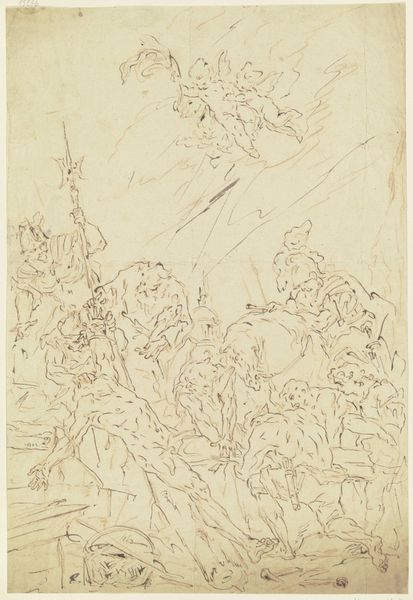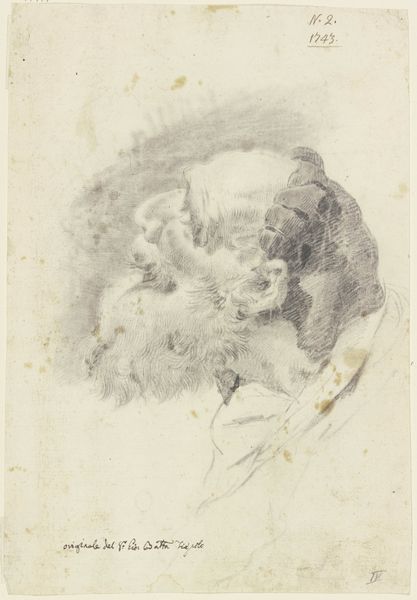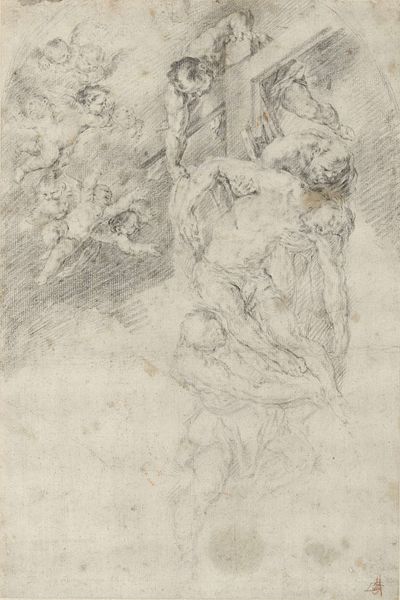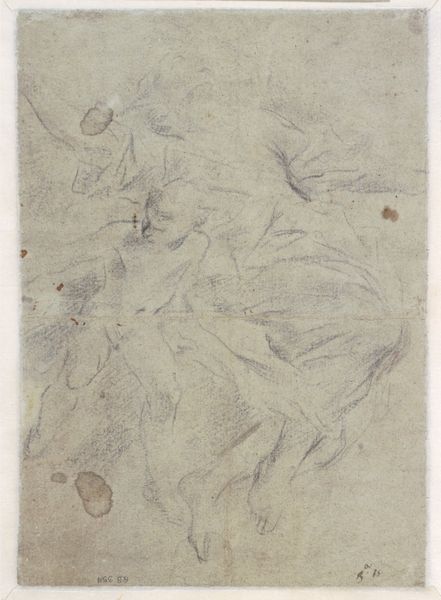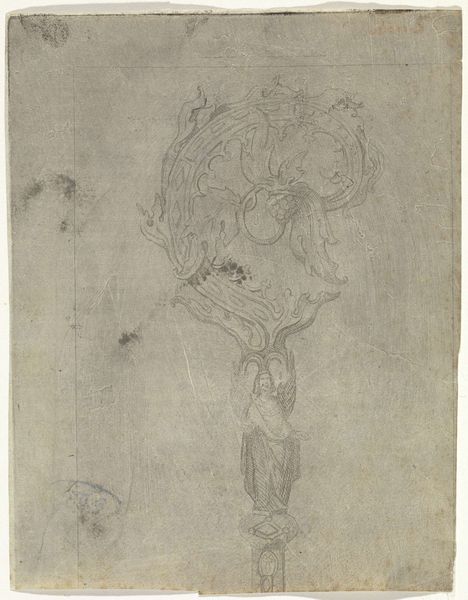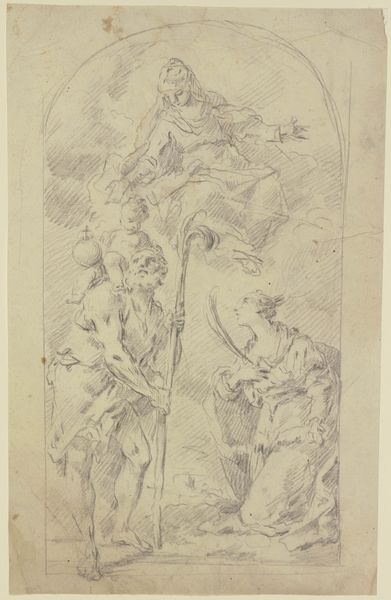
drawing, pencil, chalk
#
drawing
#
toned paper
#
baroque
#
figuration
#
pencil
#
chalk
Copyright: Public Domain
Gaspare Diziani sketched this study of garments in the 18th century. Observe how the drapery envelops the figures, conveying a sense of movement, and almost seems to possess a life of its own. The use of drapery is not merely decorative; it's a powerful symbol. Think back to classical sculptures where flowing robes denoted status, divinity, and emotional states. Consider the figures in ancient Greek sculptures, the folds of their garments artfully arranged to reveal and conceal, suggesting both vulnerability and strength. Now, jump forward to the Renaissance. Artists like Botticelli used drapery to emphasize the dynamism of their figures, such as the windswept robes of Flora in "Primavera," which speaks to the forces of nature and the vitality of spring. Even in religious art, the Madonna’s robes symbolize purity and protection. Thus, Diziani uses line and form to engage our collective memory, reminding us of these timeless motifs. The emotional weight of such imagery resonates, connecting us to centuries of artistic expression.
Comments
No comments
Be the first to comment and join the conversation on the ultimate creative platform.
